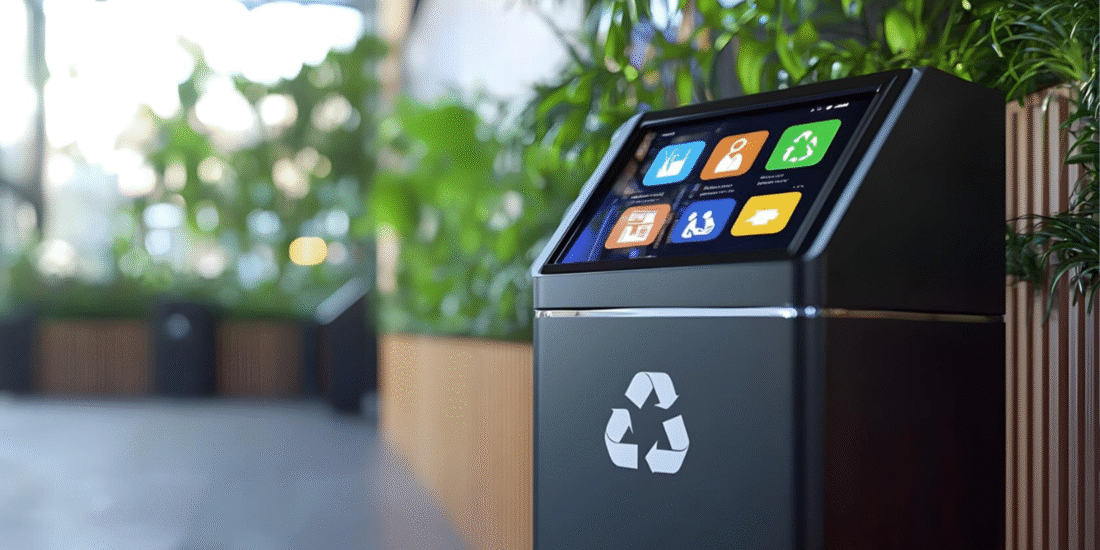
Transforming Campus Sustainability: AI-Powered Smart Waste Management System
Project Summary
The Smart Campus Waste Management System is an IoT-enabled platform designed for a university with over 12,000 students and faculty to streamline waste collection, sorting, and recycling processes. Deployed across campus waste bins and recycling stations, it integrates IoT sensors for real-time monitoring, AI-driven analytics for waste classification and optimization, and a Flutter-based mobile app for user engagement and reporting. Built with Python for AI processing, Flutter for cross-platform mobile access, and AWS with Docker and Kubernetes for scalability, the system promotes sustainable campus operations and integrates with broader smart city initiatives.
Key Challenges Addressed
- Real-Time Waste Monitoring and Collection: Managing data from distributed IoT sensors to monitor waste levels and collection needs in real time across a large campus.
- Accurate Waste Sorting and Recycling Analytics: Classifying diverse waste types (e.g., organic, recyclable, hazardous) and predicting optimal collection schedules under varying campus activities.
- User Engagement for Sustainable Practices: Encouraging students and staff to adopt eco-friendly behaviors through an intuitive, accessible mobile interface.
Solutions Implemented
To address real-time waste monitoring, we deployed IoT sensor nodes using STM32 microcontrollers with LoRa for long-range, low-power communication, enabling real-time tracking of waste bin levels and conditions across campus. These nodes, equipped with edge computing, transmitted data to AWS-hosted gateways, ensuring low-latency integration with campus facility systems. For accurate waste sorting and analytics, we developed AI models using Python, TensorFlow, and computer vision to classify waste types from bin-mounted camera feeds, achieving 95% accuracy in identifying recyclables and optimizing collection routes. NLP was used to analyze user reports submitted via the mobile app, enhancing waste management insights. The Flutter-based mobile app for iOS and Android provided students and staff with real-time bin status, recycling guidance, and AI-driven notifications for nearby collection points, supported by Dockerized microservices and Kubernetes for seamless scalability.
Technology Stack
- AI & Data Processing: Python, TensorFlow, Computer Vision, NLP
- Mobile: Flutter, iOS, Android
- IoT: LoRa, STM32 microcontrollers
- Cloud & Deployment: AWS, Docker, Kubernetes
- APIs: RESTful APIs
- Tools: Visual Studio Code, Git
Client Benefits
- Enhanced Sustainability: Increased recycling rates by 40% through AI-driven waste sorting and real-time bin monitoring.
- Operational Efficiency: Reduced waste collection costs by 30% with optimized routes and predictive scheduling.
- Improved User Engagement: Achieved 50% higher student and staff participation in recycling programs via the mobile app’s intuitive features.
Approach
- IoT-Driven Waste MonitoringDeployed STM32-based sensor nodes with LoRa and camera integration for real-time waste level tracking, connected to AWS for secure data processing.
- AI-Powered Waste AnalyticsBuilt TensorFlow and computer vision models for waste classification and route optimization, with NLP for processing user feedback.
- Mobile User EngagementDeveloped a Flutter-based app for iOS and Android, offering live bin updates, recycling tips, and AI-driven alerts, deployed with Docker and Kubernetes.
